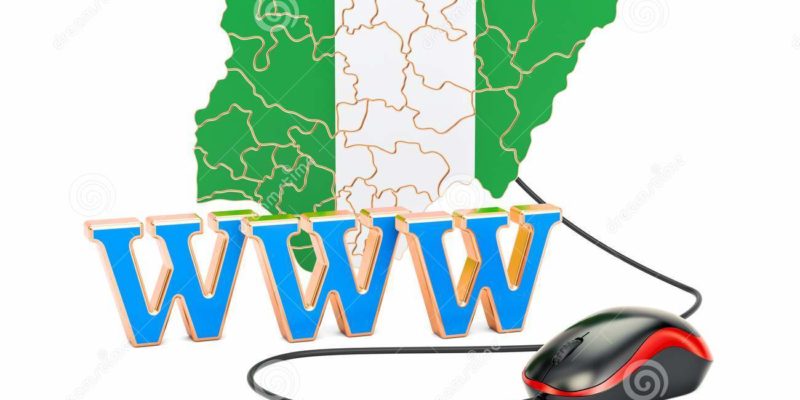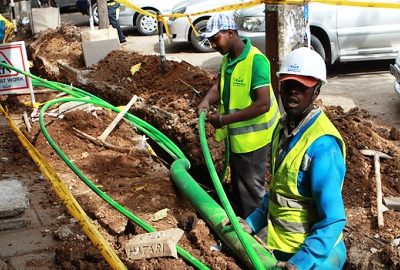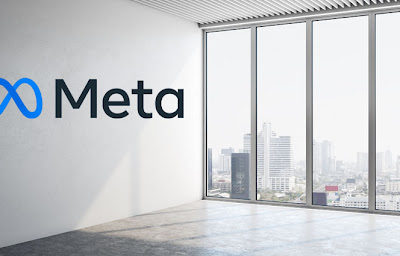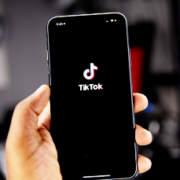By Sonny Aragba-Akpore
Despite the robust growth recorded for internet connectivity in Nigeria, the country still ranks low in global internet value index. Of the 117 countries profiled, Nigeria ranks 109 on the index.
Sixty one percent or five billion of the global population is said to be handicapped in terms of payments for internet services above global average. This part of the population spends more for poor internet connections.
SurfShark reports that “People living in countries with an internet value index above the global average of 0.0729 are classed as having fair internet prices. In contrast, countries below the average are considered to have overpriced internet. The index itself measures internet value in countries and regions from 0 to 1.
Only 4 out of 10 people get their internet at fair prices, while the remaining 61%, living in countries with indices below the global average, overpay for what they get – that’s almost 5 billion people!”
In terms of regional position, Nigeria ranks 16th with its index 56per cent lower than Africa’s average. Nigeria is in 12th place in Sub-Saharan Africa. Countries such as South Africa and Ghana ranked 70th and 105th respectively both overpaying for the internet they get.
“98.63 million people in Nigeria did not use the internet at the start of 2023, suggesting that 44.6 percent of the population remained offline at the beginning of the year.”
IVI is calculated by dividing each country’s internet speed by internet affordability to determine which countries are overpaying for their internet. According to Surfshark’s data, Nigeria ranks 109th globally with an index of 0.0017, which is 44 times lower than the global average, meaning Nigerians are overpaying for the internet they get compared to other countries worldwide.
In Africa, 4 out of 10 people can access the internet at a fair price. South Africa is the outright leader, with Egypt ranking second, followed by Morocco.
On the other side of the scale, Zimbabwe and Uganda are the lowest-ranking African countries, followed closely by Cameroon.
DataReportal reports that there were 122.5 million active internet users in Nigeria in January 2023. And the penetration rate stood at 55.4 percent of the total population at the start of 2023.
Kepios analysis indicates that internet users in Nigeria increased by 2.9 million between 2022 and 2023.
In clear terms, these user figures reveal that 98.63 million people in Nigeria did not use the internet at the start of 2023, suggesting that 44.6 percent of the population remained offline at the beginning of the year.
However, complexities associated with the collection and analysis of internet user data mean that it can often take several months before research is ready for publication. As a result, the latest published figures for internet use invariably under-represent reality, and actual adoption and growth may be higher than the figures shown here suggest. Please see our comprehensive notes on data for further details.
DataReportal also states that Nigeria was home to 31.60 million social media users in January 2023, equating to 14.3 percent of the total population.
A total of 193.9 million cellular mobile connections were active in Nigeria in early 2023, with this figure equivalent to 87.7 percent of the total population.
DataReportal, reports that 10 countries stand out in terms of internet connectivity in Africa in terms of internet penetration.
Nigeria, for instance had 109.2 million internet users as at January 2022 and penetration stands at a little over 51.0 per cent of the total population.
There were 75.66 million internet users in Egypt the same period with penetration rate standing at 71.9 per cent of the total population.
South Africa had 41.19 million internet users and a penetration of 68.2 per cent of the total population.
There were 31.59 million internet users in Morocco same period and penetration rate stood at 84.1 per cent of the total population.
There were 29.83 million internet users in Ethiopia and penetration rate stood at 25.0 per cent of the total population.
There were 27.28 million internet users in Algeria and internet penetration rate stood at 60.6 per cent of the total population.
There were 23.35 million internet users in Kenya and penetration rate stood at 42.0 per cent of the total population.
There were 16.99 million internet users in Ghana in January 2022 and internet penetration rate stood at 53.0 per cent of the total population.
DR Congo had 16.50 million internet users and penetration rate stood at 17.6 per cent of the total population.
In Tanzania, there were 15.60 million internet users and penetration rate stood at 25.0 per cent of the total population.

Author: Sonny Aragba-Akpore. Former Information and Communications Technology/News editor at the Guardian Newspaper, was Head, Corporate Communications, NigComSat, and Head,Media & Public Relations,Nigerian Communications Commission
COVER IMAGE Credit: Dreamstime


































